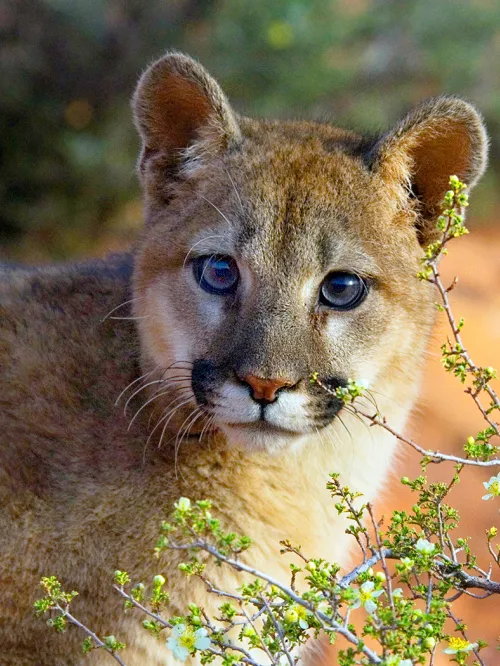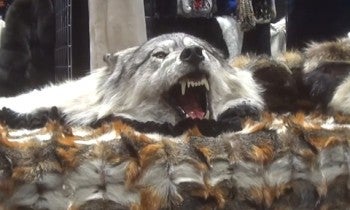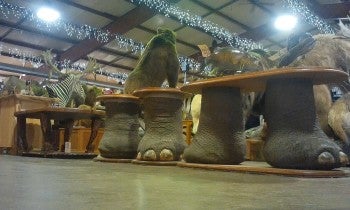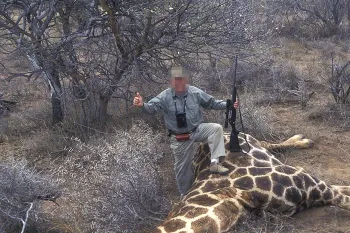
Lisa Dearing / Alamy Stock Photo
Trophy hunting
Thrill-seekers kill vital wildlife for trophies, display, photos, bragging rights and prizes, and pay big money to kill rare, often endangered, animals abroad and take home their body parts.
Did you know?
Supporters claim trophy hunting helps communities and wildlife by putting money in local people’s hands and culling weak or old animals. But in reality, very little money — as little as 3% of trophy hunting revenue — reaches the areas where hunting happens, and trophy hunters often seek the biggest, strongest animals to kill.
*Species listed under the Convention on International Trade in Endangered Species (CITES) are currently threatened by overexploitation through trade or may become so if trade isn’t regulated.
David Keith Jones/
Animals are not trophies
In the U.S. alone, trophy hunters kill more than 100,000 native carnivores every year. Take action to stop this cruel and unnecessary practice.
The Impact of Trophy Hunting on Endangered Species
"The killing of animals for trophies and trinkets threatens not only the survival of threatened and endangered species, but the populations of iconic species overall and it demands the strongest possible deterrence." —Jennifer Hillman, vice president, wildlife protection
Take Action
No animal deserves to be killed for bragging rights. Take action to stop these cruel operations.

UK: Ask your MP to ensure a UK ban on trophy hunting is prioritised
Urge them to honour their commitment to banning imports of hunting trophies to the UK by introducing a government bill as soon as possible

Ask the UK government to ban the import of hunting trophies
A trophy import ban would create a major disincentive for British trophy hunters to travel abroad to kill animals

Urge the European Union to stop importing hunting trophies
Nearly 15,000 hunting trophies of species at risk like elephants, lions, giraffes, polar bears and black rhinos were imported into the EU between 2014 and 2018.

Sign the pledge to end trophy hunting
Every year, hundreds of thousands of wild animals are killed solely to obtain "trophies"—heads, hides or pelts and even whole animals—to stuff, skin and hang on a wall.
Give them a better life
Our Animal Rescue Team rescued nearly 70 dogs and puppies from a dog meat farm in South Korea last week. Donate to help with the urgent care of these rescued dog meat survivors and to help other animals still suffering across the globe.
Jean Chung/For Humane World for Animals



